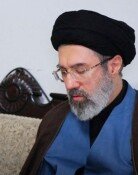Lessons learned from Israel’s intelligence failure
Lessons learned from Israel’s intelligence failure
Posted October. 17, 2023 08:08,
Updated October. 17, 2023 08:08
“You are keeping your eyes closed when they should be wide open. Is this correct?”
It was in 2010 when a key official at the presidential office during President Lee Myeong-bak’s term summoned administration staff and criticized them for their actions. Back then, North Korean leader Kim Jong-il’s health conditions were critical and his successor Kim Jong Un had increased public exposure. There was a strong need to concentrate intelligence capabilities on North Korea, but critical reports to the president by intelligence agencies on North Korean key leaders had continued to be off. Hence, they were criticized by senior officials. Lee, whom Dong-A Ilbo met personally recently, recalled that “North Korean HUMINT (human intelligence) has degraded during President Kim Dae-jung and President Roh Moo-hyun. This has proved to be a weak point when we could not leverage HUMINT when it was most needed.”
The head of the National Intelligence Agency was renamed for the first time since the launch of the Yoon administration. Top officials at the NIA were also replaced. In the process, investigations were made into how the agency operated during President Moon’s term. The prevailing view was that intelligence gathering capabilities on North Korea had noticeably weakened, particularly towards HUMINT. “Intelligence gathering is critical to strengthening our deterrence against North Korea, but during President Moon Jae-in administration there was too much focus on North Korean aid. We are working on correcting this,” said a senior government official.
The importance of intelligence has surfaced again with the recent attack by the Palestinian armed group Hamas against Israel. Israel’s national intelligence agency Mossad, considered one of the best in the world, was caught off guard as it failed to detect Hamas's surprise attack. One of the primary reasons behind this failure is a malfunction of HUMINT capabilities. That is why we are seeing growing voices of concern that the government should strengthen its humint capabilities against North Korea.
“No matter how advanced SIGINT (signal intelligence) or IMINT (image intelligence) becomes, Humint should not be overlooked,” stressed an intelligence agency official. Despite technological advancements improving the resolution of photos and boosting the ability to eavesdrop on whispered conversations, the need for ‘live’ information obtained by people exists all the same. “It’s the same way ground forces serve as core forces in the battlefield, despite greater participation of air forces and navy,” said the official.
Observing the situation in Israel, the South Korean government plans to inspect and strengthen Humint, focusing on key bases such as North Korea's missile launch sites and North Korean allies such as Iran. It is encouraging to see that intelligence authorities recognize the need to strengthen humints against North Korea.
There have been countless cases in which critical information, including abrupt changes in North Korean leadership, has been confirmed through Humint. It takes at least five years to build an effective humint network. It is an unspoken rule among US intelligence authorities to leave humint-related resources intact even if the government has been changed. It is risky to make changes to humint after years of building efforts on the grounds of government change or strengthening cooperation with North Korea. As the saying goes, you should not tear down the dam you worked so hard to build.







